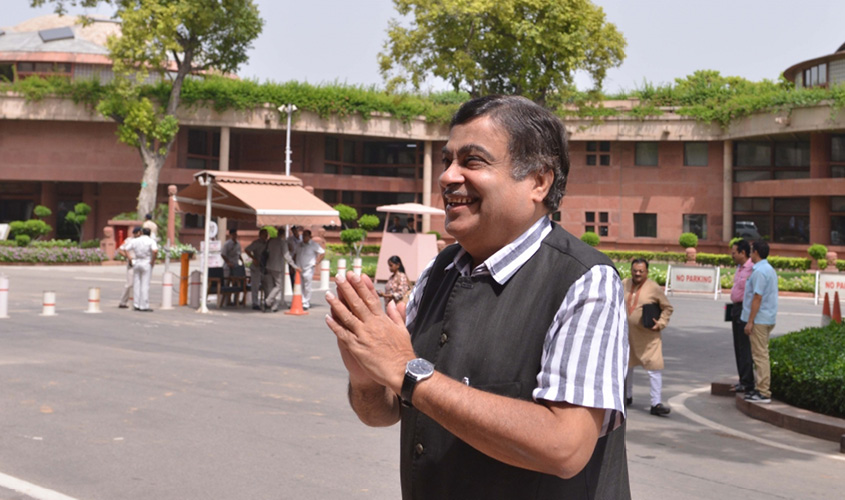The Narendra Modi government is all set for early completion of the Delhi-Mumbai Industrial Corridor (DMIC) project ahead of the scheduled 2020 deadline, with the Cabinet approving three projects worth Rs 3,000 crore, sources told this newspaper.
“The Bharatiya Janata Party-led NDA government has planned to use the DMIC project as one of its achievements in the 2019 general elections and for that, the government wants to get the project ready before the scheduled deadline. Minister of Road Transport and Highways Nitin Gadkari has already started working in this direction and has assured the Prime Minister’s Office of completing the work before deadline,” a source close to the Ministry of Road Transport and Highways told The Sunday Guardian.
Earlier, Nitin Gadkari had said: “Work is on at top speed on the DMIC project, which will enable us to reach Mumbai from Delhi in 12-13 hours compared to the 18 hours it takes now. The DMIC will be our great achievement and the project will boost investments, manufacturing, the job market and growth.”
The Cabinet Committee on Economic Affairs (CCEA), chaired by Prime Minister Narendra Modi, has given its approval for developing the Trunk Infrastructure of the Integrated Multi Modal Logistics Hub, known as “Freight Village”, at Nangal Chaudhary in Haryana as part of DMIC.
According to an official statement: “The proposed development of a Freight Village as Multi Modal Logistics Hub is estimated to generate over 4,000 direct and 6,000 indirect jobs. Job creation will not be limited to core logistics facilities, but would also entail opportunities for the entire logistics supply chain.”
The other projects cleared by the CCEA include formation of a Special Purpose Vehicle for implementation and operation of a model solar power project at Neemrana as a 100% subsidiary of the Delhi-Mumbai Industrial Corridor Development Corporation and approval for development of trunk infrastructure for integrated Industrial Township at Greater Noida.”
The official statement says: “The CCEA has approved the utilisation of Japanese assistance under the JICA through Special Terms for Economic Partnership (STEP) of Japanese official development assistance loans for the DMIC project and the operational rules, terms and conditions of this tied loan facility.”
The assistance from Japan International Cooperation Agency (JICA) under the STEP loan facility will be required, particularly for trunk infrastructure projects and transport connectivity projects that may not be commercially viable in their initial stages.
The DMIC project, which was thought of during the time of the Congress-led United Progressive Alliance (UPA) government, stayed dormant in the files, and started to pick pace only after PM Modi’s government came to power.
The almost 1,500 km long DMIC is a planned industrial development project between the country’s capital Delhi and its financial hub, Mumbai. It is one of the world’s largest infrastructure projects with an estimated investment of $90 billion and is planned as a high-tech industrial zone spread across six states.
The DMIC project includes 24 industrial regions, eight smart cities, two international airports, five power projects, two mass rapid transit systems and two logistical hubs.
The DMIC has also proposed eight investment regions that will be developed in the Phase I of the project. The eight investment regions are: Dadri-Noida-Ghaziabad (in Uttar Pradesh); Manesar-Bawal (in Haryana); Khushkhera-Bhiwadi-Neemrana and Jodhpur-Pali-Marwar (in Rajasthan); Pithampur-Dhar-Mhow (in Madhya Pradesh); Ahmedabad-Dholera Special Investment Region (Gujarat): Shendra-Bidkin Industrial Park, and the Dighi Port Industrial Area (Maharashtra).
The DMIC project has received a major boost from Japan, as it has committed to invest $4.5 billion in it. An agreement to set up a project development fund with an initial size of Rs1,000 crore has already been signed between India and Japan.

